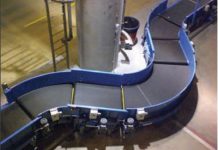
PlanetM, the mobility initiative of the Michigan Economic Development Corp., has awarded a fourth round of PlanetM Mobility Grants, worth more than $300,000, to four mobility and technology companies so that they can deploy pilot programs around the state.
PlanetM Mobility Grants are designed to help companies with the resources needed to test their solutions in Michigan, ultimately optimizing the movement of people, goods, and/or data to create greater access to mobility solutions.
“We are excited and encouraged by the pilots that will be deployed through this round of PlanetM Mobility Grants,” says Charlie Tyson, technology activation manager at PlanetM. “We have an opportunity and a responsibility to improve the quality of life for our citizens by solving the transportation hurdles they face. Being at the forefront of the emerging mobility landscape, we’re able to see firsthand how these mobility pilots can significantly impact the lives of those in our communities.”
Ann Arbor-based e-Mobility Analytics, whose primary focus is EV solar charging system design, data acquisition, and analysis with a specialization in solar charging consultation and advocacy, received a grant worth $75,000. In partnership with the city of Ann Arbor, e-Mobility Analytics will install its prototype electric vehicle solar charging station, which uses solar, battery, and grid-tied backup for level two service in downtown Ann Arbor, to provide sustainable energy for EV charging and to promote the imminent transition to true zero carbon in electric mobility.
This downtown Ann Arbor installation will offer a highly visible charging point, create public awareness of solar charging, and provide invaluable data for the development of solar charging stations around Michigan and the region. The project will employ Michigan-based suppliers, fabricators, and skilled installers supporting our state’s economy and the growing electric automotive industry.
“Our company’s vision is to lead in the deployment of clean, affordable, and sustainable energy to power our emerging zero carbon transportation future for everyone and everywhere, from urban areas to state parks,” says Jonathan Dreyfuss, CEO of e-Mobility Analytics. “Solar EV charging has many benefits, including reducing e-mobility transportation costs for everyone, cleaning up our air, land, and water as we reduce our dependence on fossil fuels while creating new economic opportunities in the manufacturing, installation, and servicing of these new charging systems. For our company to be located in the region that is the hub of America’s e-mobility transportation future makes this project even more relevant.”
Parkofon, which is working in collaboration with Continental and the University of Detroit Mercy’s College of Engineering and Science, will deploy a fully automated student parking on-demand technology on the UDM campus. Parkfon received a grant of $77,000.
This high-accuracy geo-positioning system minimizes search time for a parking space and has the potential to significantly improve fuel efficiency while eliminating the headache and frustration often associated with campus parking. Paired with the Continental Parkpocket mobile app, the platform automatically assigns the nearest available parking spot when drivers, including EV owners, reach campus, improving the overall commuter experience.
“As the market moves towards vehicle automation, we are excited to deploy our highly accurate in-car location technology in Michigan, in an effort to automate parking and remove outdated permits, meters, and parking management techniques,” says Evgeny Klochikhin, CEO of Parkofon. “Commuters will be happy with real-time space availability and associated time and fuel savings.”
Florida-based PikMyKid, which received a $60,000 PlanetM grant, will expand its school traffic and safety solution in Michigan in collaboration with several rural schools within mid-Michigan communities, including Carleton, Caro, Hillman, and West Branch. PikMyKid’s smart mobility solution for schools ensures the safety of kids, and drives a positive change in their communities by empowering schools with affordable technology.
Initial research has shown that schools have consistently observed reduced traffic congestion, increased carpooling among parents and created safer processes for kids to walk home after-school, thus creating healthier and more sustainable school communities. PikMyKid maximizes the socio-economic impact within the school community and improves safety at various levels. As part of this pilot, PikMyKid will be providing a district-wide view for schools to share their benefits, setting a framework for other regions to follow.
“Founded by a passionate group of educators and parents, PikMyKid currently serves schools in more than 42 states and seven countries,” says Pat Bhava, founder and CEO of PikMyKid. “We fundamentally believe that school safety should not be a function of its zip code and we are appreciative of this grant initiative to improve access for school districts that may have limited budgets. We want to use this opportunity to help Michigan school districts to drive innovation in student safety and exemplify themselves as mobility friendly schools in their neighborhood.”
As the rise of mobility-as-a-service platforms heat up, Toronto-based Zown received $95,000 to bring its mobility platform technology to Detroit in partnership with the city of Detroit and rideshare providers in Detroit, to improve the efficiency and accessibility of ride-hailing services for consumers by tackling ‘pick-up confusion,’ a condition caused by drivers circling repeatedly to find their passengers in high-traffic areas, further contributing to congestion and delays.
This pilot project aims to streamline ride-hailing pick-ups by designating a unique digital location pin for each trip request, ensuring passengers meet their driver at the optimal place every time. A first-of-its-kind pilot, the data obtained through each trip will then be shared with the city to help plan for curb management and re-zoning, including helping properties integrate more seamlessly with ride-hail providers.
“Zown’s partnership with the city of Detroit to provide digital curbside management marks the first attempt to truly integrate ridehailing services at the municipal level and ensure upside for passengers, drivers and nearby properties,” says Saleem Ahmad, CEO of Zown. “Our objective is to reduce unnecessary congestion and make ridehailing a more attractive and accessible option for Detroit residents.”
Since its inception in 2018, the PlanetM Mobility Grant program has provided more than $1.5 million in grant funding to 20 mobility startups looking to test, refine and deploy their technologies in Michigan.











